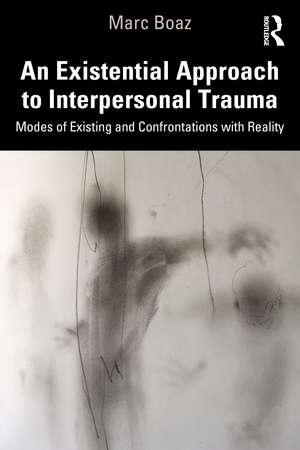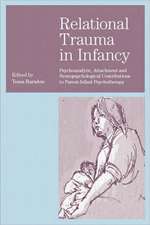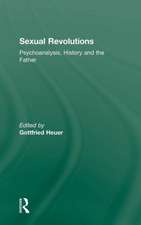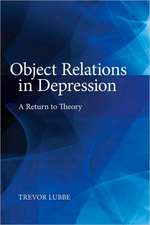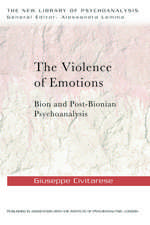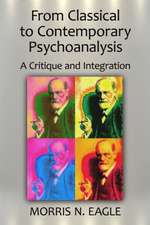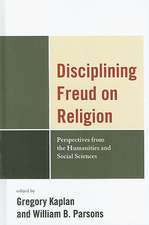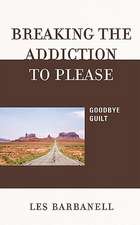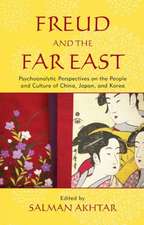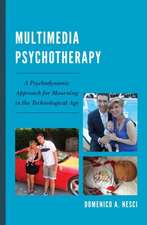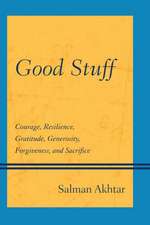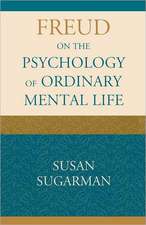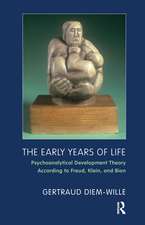An Existential Approach to Interpersonal Trauma: Modes of Existing and Confrontations with Reality
Autor Marc Boazen Limba Engleză Paperback – 25 mar 2022
| Toate formatele și edițiile | Preț | Express |
|---|---|---|
| Paperback (1) | 231.85 lei 3-5 săpt. | +10.22 lei 5-11 zile |
| Taylor & Francis – 25 mar 2022 | 231.85 lei 3-5 săpt. | +10.22 lei 5-11 zile |
| Hardback (1) | 1095.75 lei 6-8 săpt. | |
| Taylor & Francis – 25 mar 2022 | 1095.75 lei 6-8 săpt. |
Preț: 231.85 lei
Preț vechi: 244.05 lei
-5% Nou
44.37€ • 46.04$ • 37.09£
Carte disponibilă
Livrare economică 24 februarie-10 martie
Livrare express 08-14 februarie pentru 20.21 lei
Specificații
ISBN-10: 1032020601
Pagini: 246
Dimensiuni: 156 x 234 x 22 mm
Greutate: 0.36 kg
Ediția:1
Editura: Taylor & Francis
Colecția Routledge
Locul publicării:Oxford, United Kingdom
Public țintă
Postgraduate, Professional, and Professional Practice & DevelopmentRecenzii
Martin Adams, Existential therapist and author of An Existential Approach to Human Development
‘This is essential reading for all those wanting to learn more about interpersonal trauma and its theoretical underpinnings. Marc makes an invaluable contribution to field by exploring key concepts and questions about trauma and setting out important implications for practice.’
Kadra Abdinasir, Associate Director for Children and Young People’s Mental Health, Centre for Mental Health
Cuprins
Notă biografică
Descriere
An Existential Approach to Interpersonal Trauma provides a new existential framework for understanding the experiences of interpersonal trauma building on reflections from Marc Boaz's own personal history, clinical insight, and research.
The book suggests that psychology, psychotherapy and existentialism do not recognise the significance of the existential movements that occur in traumatic confrontations with reality. By considering what people find at the limits and boundaries of human experiencing, Boaz describes the ways in which they can disillusion and re-illusion themselves, and how this becomes incorporated into their modes of existing in the world and in relation to others. In incorporating the experience of trauma into the way people live - all the existential horror, terror and liberation contained within it - Boaz invites them to embrace an expansive ethic of (re)(dis)covery. This ethic recognises the ambiguity and spectrality of interpersonal trauma, and expands the horizons of our human relationships.
The book provides an important basis for professionals wanting to work existentially with interpersonal trauma and for people wanting to deepen their understanding of the trauma they have experienced.
